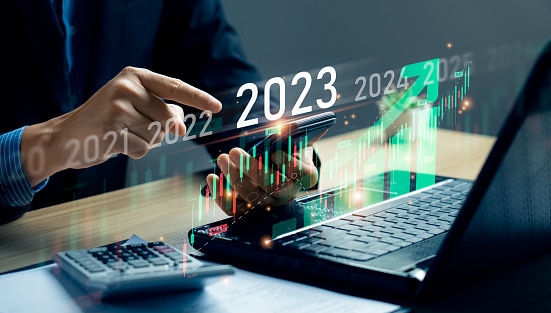


In order to fully grasp the impact of inflation on taxes, it is important to have a clear understanding of what inflation is and how it affects the economy as a whole. Inflation refers to the general increase in prices of goods and services over time, resulting in a decrease in the purchasing power of money.
It is crucial to recognize the ripple effects it has on taxes. One of the most direct impacts of inflation on taxes is the potential increase in income tax liability. As prices rise, individuals and businesses may have to earn more income in order to maintain their purchasing power. This increase in income can push taxpayers into higher tax brackets, resulting in a higher tax liability.
Additionally, inflation can impact various tax deductions and credits, such as the standard deduction and child tax credit, which are often adjusted for inflation. Inflation can also affect the value of certain tax benefits, such as depreciation deductions for businesses.
When it comes to individual income taxes, inflation can have a significant impact on the amount of tax you owe. As prices increase due to inflation, your income may have to increase as well in order to maintain your standard of living. However, this increase in income can push you into higher tax brackets, resulting in a higher tax liability.
For example, let’s say you earned $50,000 last year and were in the 22% tax bracket. Due to inflation, the cost of living has risen, and you now need to earn $55,000 to maintain your purchasing power. However, since your income has increased, you may now find yourself in the 24% tax bracket. This means that you will owe more in taxes, even though the increase in income was just to keep up with inflation.
Furthermore, it can also impact the value of certain tax deductions and credits. For instance, the standard deduction is often adjusted for inflation each year. If the rate is high, the value of the standard deduction may be increased, which can reduce your taxable income and lower your overall tax liability.
Inflation can also affect various tax credits, such as the child tax credit. If the credit does not keep pace with inflation, it may become less valuable over time and offer less tax savings.
Understanding how this impacts your individual income taxes is crucial for effective tax planning. By staying informed on the latest changes in tax laws and inflation adjustments, you can make informed decisions that minimize your tax burden.
In addition to individual income taxes, inflation also has an impact on business taxes. For businesses, it can affect a variety of areas such as deductions, depreciation, and cost recovery.
One area where this plays a significant role is in the valuation of assets. As the value of goods and services increase due to inflation, the value of a business’s assets can also appreciate. This can result in higher taxable gains when assets are sold or disposed of.
Depreciation is another aspect that can be impacted. The depreciation expense is calculated based on the original cost of the asset, spread out over its useful life. However, if the cost of replacing the asset increases due to inflation, it may result in a longer recovery period or a greater depreciation expense over time.
Furthermore, it can also affect the deductibility of business expenses. As prices rise, so does the cost of doing business. This can include everything from raw materials and supplies to rent and utilities. Inflation may result in higher expenses, which can be deducted from a business’s income, reducing the overall tax liability.
Understanding how it impacts business taxes is essential for effective tax planning. By staying updated on these adjustments and tax laws, business owners can make informed decisions to minimize their tax burden and maximize their bottom line.
In Conclusion, US Inflation affects both individual and business taxes. It’s crucial to have an understanding of the many ways it can impact your taxes for effective tax planning. Partnering with a trusted CPA firm can be instrumental in navigating the complexities of inflation and taxes. Their expertise, personalized advice, and ongoing support can help you optimize your tax planning and minimize your tax burden.
Site Design: © Copyright Forge Media ™